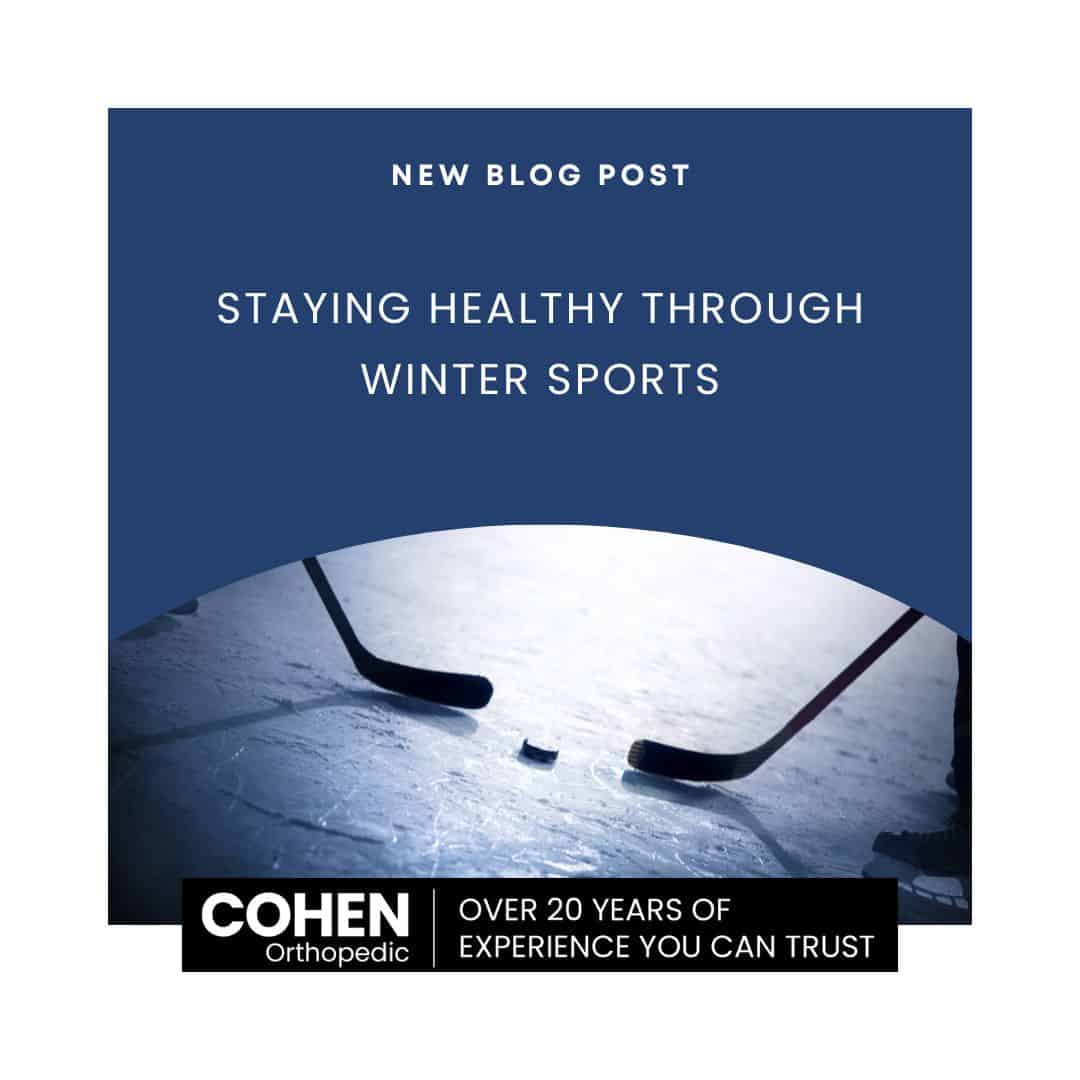Staying Healthy While Playing Winter Sports: Tips for Preventing Injuries and Getting Quick Care

Winter sports like basketball, swimming, and hockey offer exhilarating experiences and a great way to stay active when the weather gets cold. But with the thrill of these activities comes the risk of injury. Whether you’re a seasoned athlete or just enjoying a winter day outdoors, it’s essential to prioritize your health and well-being to keep having fun on the ice.
In this blog, we’ll explore some key tips for staying healthy while playing winter sports and how you can get the care you need—quickly—if an injury does occur.
1. Warm Up and Stretch
Cold temperatures can make your muscles more prone to stiffness, so it’s essential to take the time to warm up. Start with light cardio, like walking or easy jogging, to get your blood flowing. Then, focus on dynamic stretches—like leg swings, arm circles, and lunges—that prepare your muscles for the movements you’ll be doing. Stretching before activity helps improve flexibility and reduces the risk of sprains, strains, and other soft tissue injuries.
2. Wear Proper Gear
The right gear is crucial for both safety and comfort. Make sure you’re wearing layers that keep you warm but allow for flexibility, moisture-wicking base layers, and insulated outer layers.
- For ice skating and hockey: Make sure your skates are well-fitted and sharpened. If you’re playing hockey, wear full protective gear, including pads for your knees, elbows, shoulders, and shins, along with a face shield or cage to protect your face.
Proper gear can prevent injuries that occur due to slips, falls, and collisions.
3. Know Your Limits
Winter sports can be physically demanding, and it’s easy to push yourself harder than you should. Be aware of your skill level and avoid taking on challenges that are too advanced for your current abilities. Overexertion and improper technique are major contributors to injuries, especially in high-impact sports.
Take breaks when you need them and listen to your body. Fatigue can affect your coordination and increase the likelihood of accidents.
4. Stay Hydrated and Fuel Your Body
Even in cold weather, staying hydrated is essential for maintaining energy levels and muscle function. Dehydration can lead to fatigue, cramps, and slower reaction times—factors that can increase your risk of injury. Drink plenty of water throughout the day, especially if you’re engaging in strenuous physical activity.
Fuel your body with healthy, balanced meals that include protein for muscle repair, carbohydrates for energy, and healthy fats for overall health. Eating nutrient-dense foods will help keep you strong and energized on the slopes, rink, or ice.
5. How to Handle an Injury: Quick Access to Care with Cohen Orthopedic
Despite taking all the precautions, winter sports can still result in injuries—whether it’s a sprained ankle from a misstep on the ice or a pulled muscle from too much intensity. In those cases, quick access to medical care is crucial for proper treatment and recovery.
Cohen Orthopedic offers same-day and next-day appointments, so you don’t have to wait long for a diagnosis and treatment plan. Whether it’s a minor strain or something more serious, our orthopedic specialists are available to provide expert care when you need it most.
If you’re unsure about the severity of your injury, you can also get immediate access to care through the HURTapp. This easy-to-use app allows you to quickly connect with orthopedic professionals who can guide you through the next steps, offer virtual consultations, and help determine whether you need in-person care. Download it here: poweredbyhurt.com/cohenorthopedic.
7. Common Winter Sports Injuries and How to Prevent Them
Here are a few common injuries in winter sports and tips on how to avoid them:
- Sprained Ankles: Wearing well-fitted shoes and using the proper technique for stopping and turning can help prevent sprained ankles.
- Knee Injuries: Strengthen your legs with exercises like squats and lunges to support your knees, and always wear knee pads if you’re playing hockey.
- Concussions
- Fractures: Falling on hard surfaces increases the risk of fractures. Wear protective gear and practice controlled falls to minimize impact.
Conclusion: Keep Enjoying Winter Sports Safely
Winter sports offer an exciting way to stay active and enjoy the season, but it’s important to take the right precautions to keep yourself safe. By warming up, using proper gear, knowing your limits, and staying hydrated, you can reduce your risk of injury. And if the unexpected happens, remember that Cohen Orthopedic is ready to help with same-day and next-day appointments and immediate access through the HURTapp.
Stay safe, stay healthy, and enjoy all that winter has to offer—without the worry of injury getting in the way!
Disclaimer: Always consult a healthcare provider before starting any new exercise program or sport, and if you experience any pain or injury, seek medical attention promptly.










